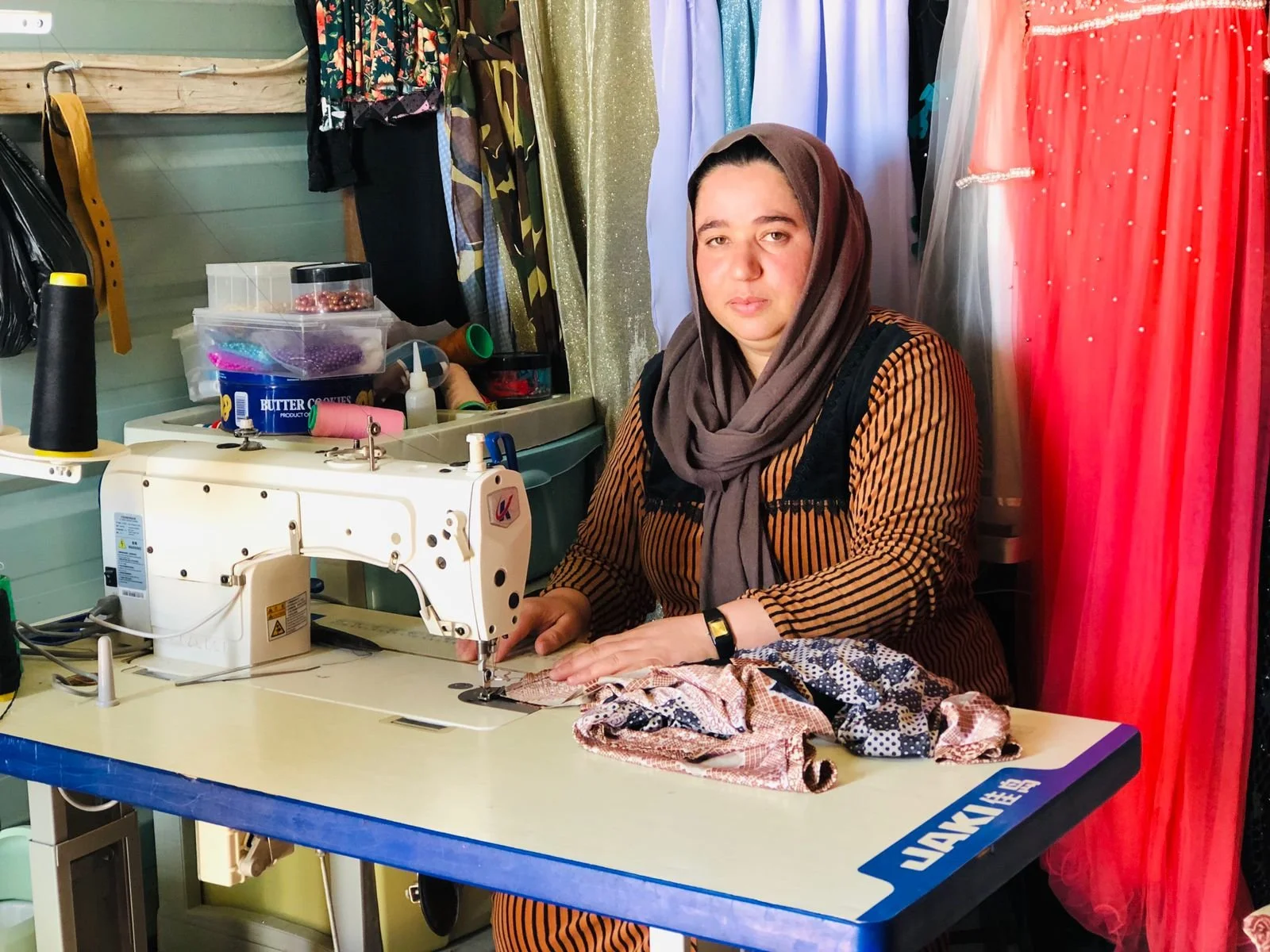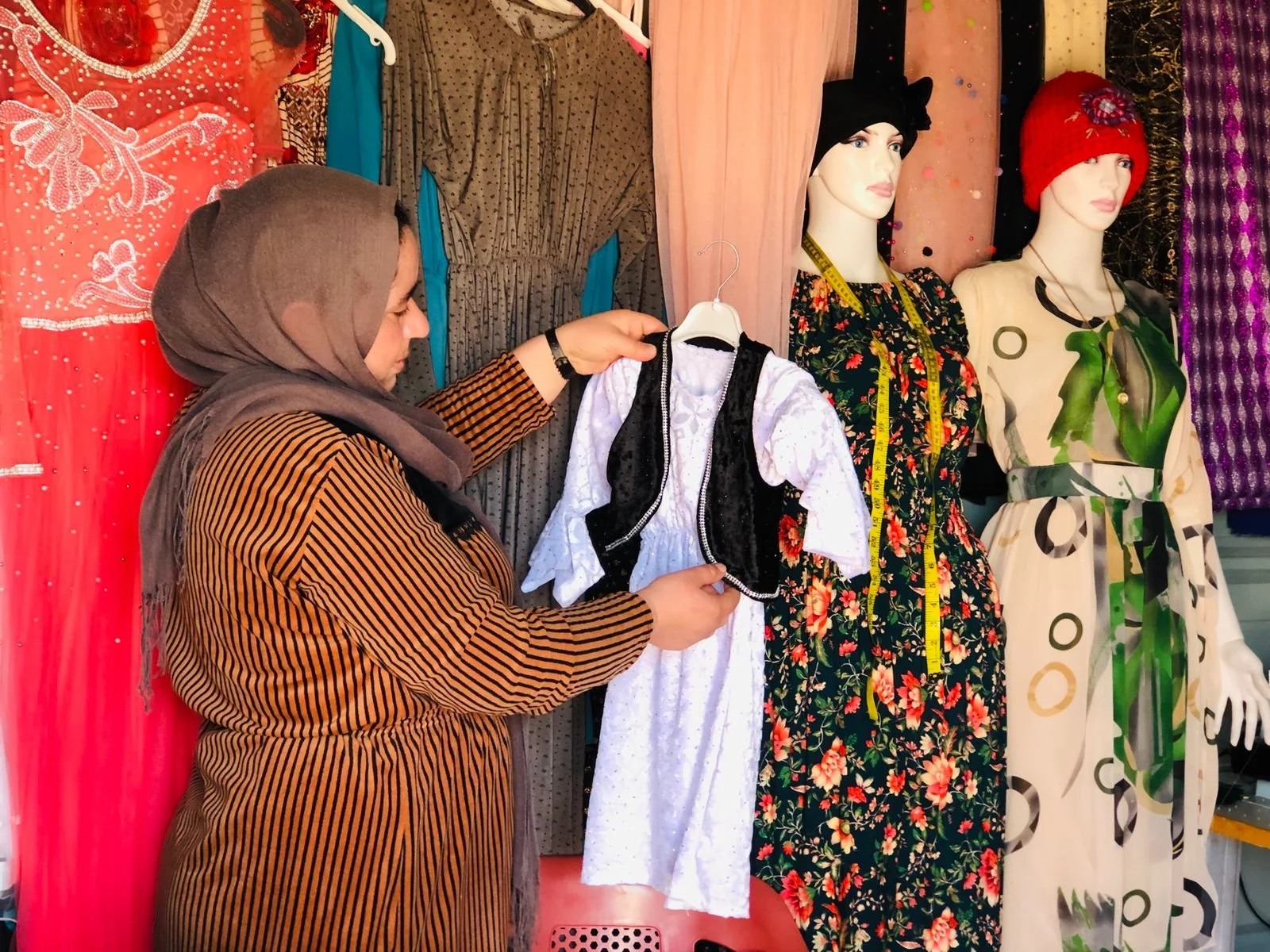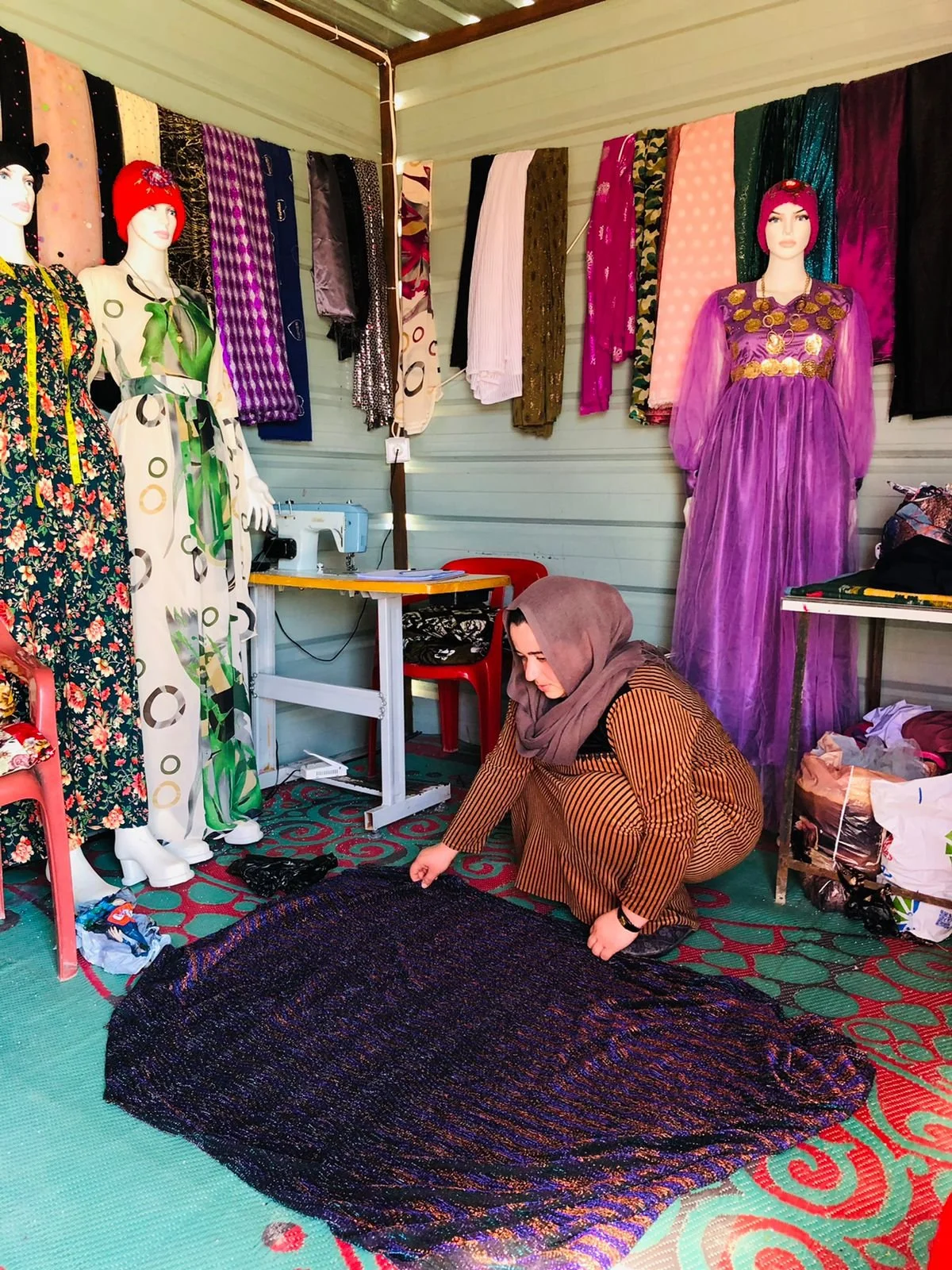Sisters' Stories: Naam’s tailoring shop prospers despite Covid struggles
There’s no denying that Covid-19 has had a critical impact on women’s livelihoods in Iraq. With the pandemic resulting in business closures and widespread loss of income, many women have been left with little or no way of supporting themselves and their families.
As part of our ‘Sisters’ Stories’ series, we turn our attention this week to one of our big focus areas - enabling women to start their own small businesses through grants and training. Despite difficult times, we’re delighted to have been able to support entrepreneur Naam in this way.
The 30-year-old mother, who lives at Essyan camp, took part in our business training initiative in 2020, and with the skills she learned decided to open a tailoring shop. “I have excellent skills and experience in this, but poverty meant I was never able to afford a sewing machine or the necessary equipment,” says Naam.
After completing our specialised training and receiving financial support, she was able to start her business. “It meant I could earn a very good income for myself and my children,” she says. “But when the pandemic began I was faced with difficulty in bringing in an income as I had far fewer customers than before. This impacted on my ability to source the fabric I needed for my shop. But once again, the Lotus Flower was there to support me, and provided me with all necessary equipment that I needed to restart my business.”
We have been working hard to enable many women-led businesses to start up again following the damaging effects of Covid-19, but much more support is still needed. With a large proportion of women having lost jobs due to lockdowns and restriction of movement, they also suffer from a general lack of economic opportunity, which impacts most heavily on those who are now head of household.
Our pioneering livelihoods programme empowers women to earn a sustainable income through their own skills, become financially independent and primary decision-makers within their families and communities. Since the pandemic struck, we have also made our project more resilient by focusing on business training that can withstand times of crisis or unforeseen disruption – such as digital and online marketing, social media, crisis management, hygiene training and delivery services.
As just one of many beneficiaries, Naam adds: “I am so grateful to the Lotus Flower and hope people continue to support the organisation so that more vulnerable women and girls in camps can receive this kind of support.”



